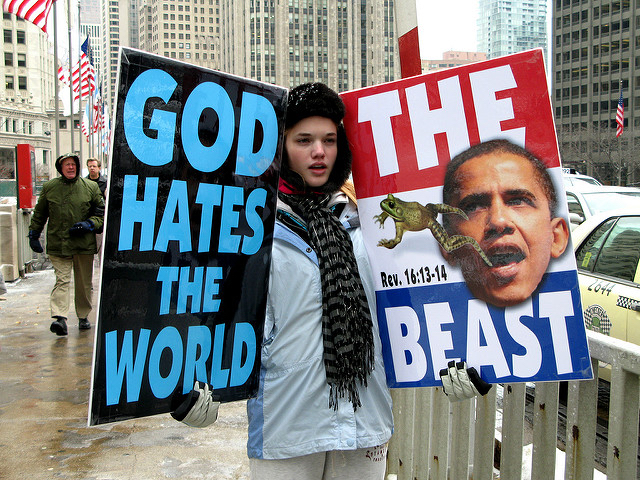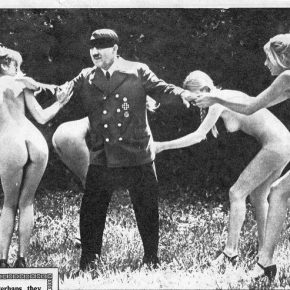The perfect Christian state is not the so-called Christian state – which acknowledges Christianity as its basis, as the state religion, and, therefore, adopts an exclusive attitude towards other religions. On the contrary, the perfect Christian state is the atheistic state, the democratic state, the state which relegates religion to a place among the other elements of civil society.
The state which is still theological, which still officially professes Christianity as its creed, which still does not dare to proclaim itself as a state, has, in its reality as a state, not yet succeeded in expressing the human basis – of which Christianity is the high-flown expression – in a secular, human form. The so-called Christian state is simply nothing more than a non-state, since it is not Christianity as a religion, but only the human background of the Christian religion, which can find its expression in actual human creations.
The so-called Christian state is the Christian negation of the state, but by no means the political realization of Christianity. The state which still professes Christianity in the form of religion, does not yet profess it in the form appropriate to the state, for it still has a religious attitude towards religion – that is to say, it is not the true implementation of the human basis of religion, because it still relies on the unreal, imaginary form of this human core. The so-called Christian state is the imperfect state, and the Christian religion is regarded by it as the supplementation and sanctification of its imperfection. For the Christian state, therefore, religion necessarily becomes a means; hence, it is a hypocritical state.
It makes a great difference whether the complete state, because of the defect inherent in the general nature of the state, counts religion among its presuppositions, or whether the incomplete state, because of the defect inherent in its particular existence as a defective state, declares that religion is its basis. In the latter case, religion becomes imperfect politics. In the former case, the imperfection even of consummate politics becomes evident in religion. The so-called Christian state needs the Christian religion in order to complete itself as a state. The democratic state, the real state, does not need religion for its political completion.
On the contrary, it can disregard religion because in it the human basis of religion is realized in a secular manner. The so-called Christian state, on the other hand, has a political attitude to religion and a religious attitude to politics. By degrading the forms of the state to mere semblance, it equally degrades religion to mere semblance.
In the Christian-German state, however, religion is an “economic matter” just as “economic matters” belong to the sphere of religion. The domination of religion in the Christian-German state is the religion of domination.

The members of the political state are religious owing to the dualism between individual life and species-life, between the life of civil society and political life. They are religious because men treat the political life of the state, an area beyond their real individuality, as if it were their true life. They are religious insofar as religion here is the spirit of civil society, expressing the separation and remoteness of man from man.
Political democracy is Christian since in it man, not merely one man but everyman, ranks as sovereign, as the highest being, but it is man in his uncivilized, unsocial form, man in his fortuitous existence, man just as he is, man as he has been corrupted by the whole organization of our society, who has lost himself, been alienated, and handed over to the rule of inhuman conditions and elements – in short, man who is not yet a real species-being. That which is a creation of fantasy, a dream, a postulate of Christianity, i.e., the sovereignty of man – but man as an alien being different from the real man – becomes, in democracy, tangible reality, present existence, and secular principle.
In the perfect democracy, the religious and theological consciousness itself is in its own eyes the more religious and the more theological because it is apparently without political significance, without worldly aims, the concern of a disposition that shuns the world, the expression of intellectual narrow-mindedness, the product of arbitrariness and fantasy, and because it is a life that is really of the other world.
Christianity attains, here, the practical expression of its universal-religious significance in that the most diverse world outlooks are grouped alongside one another in the form of Christianity and still more because it does not require other people to profess Christianity, but only religion in general, any kind of religion (cf. Beaumont’s work quoted above). The religious consciousness revels in the wealth of religious contradictions and religious diversity.
We have, thus, shown that political emancipation from religion leaves religion in existence, although not a privileged religion. The contradiction in which the adherent of a particular religion finds himself involved in relation to his citizenship is only one aspect of the universal secular contradiction between the political state and civil society. The consummation of the Christian state is the state which acknowledges itself as a state and disregards the religion of its members. The emancipation of the state from religion is not the emancipation of the real man from religion.
Adapted from On The Jewish Question (1843). Photographs courtesy of Daniel Rangel and Joe Crawford. Published under a Creative Commons license.





